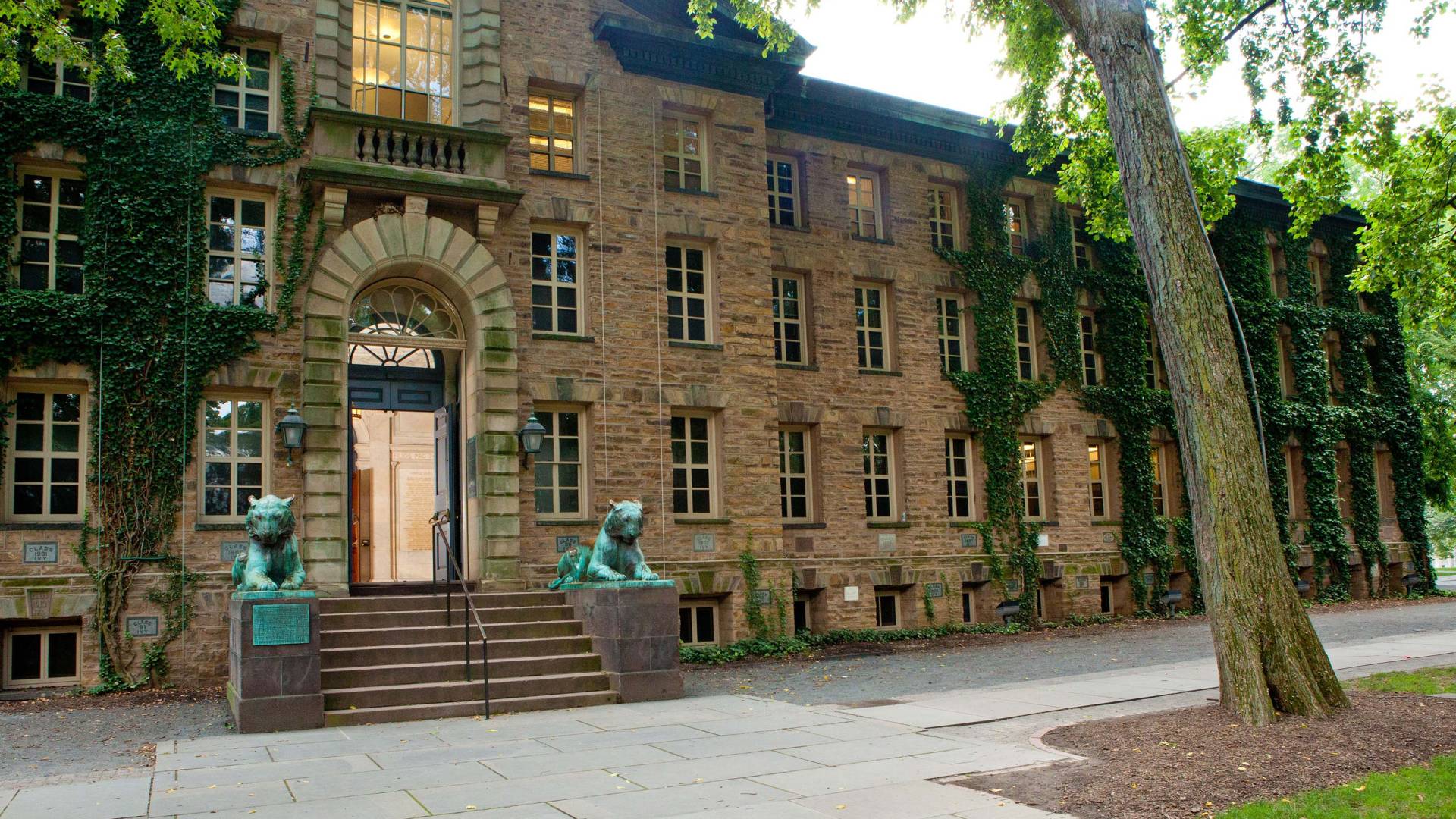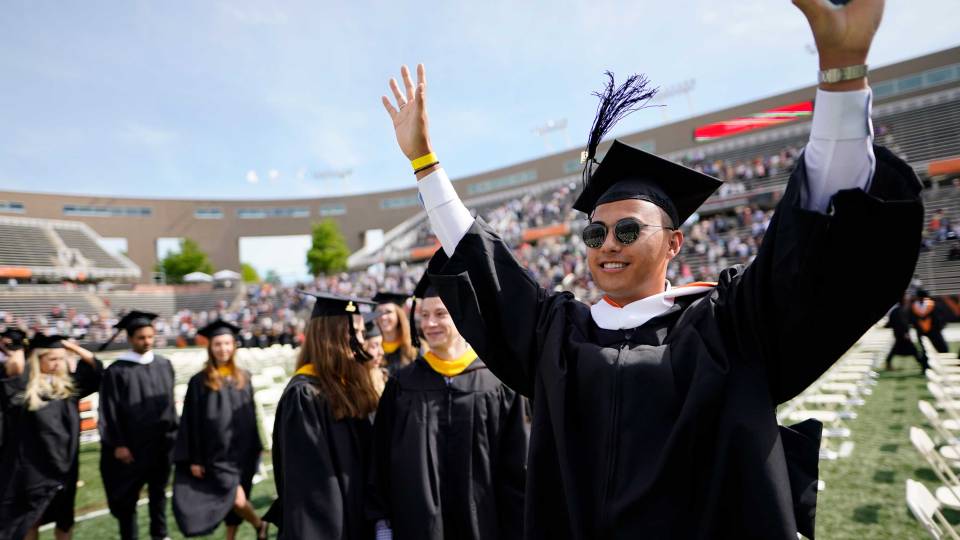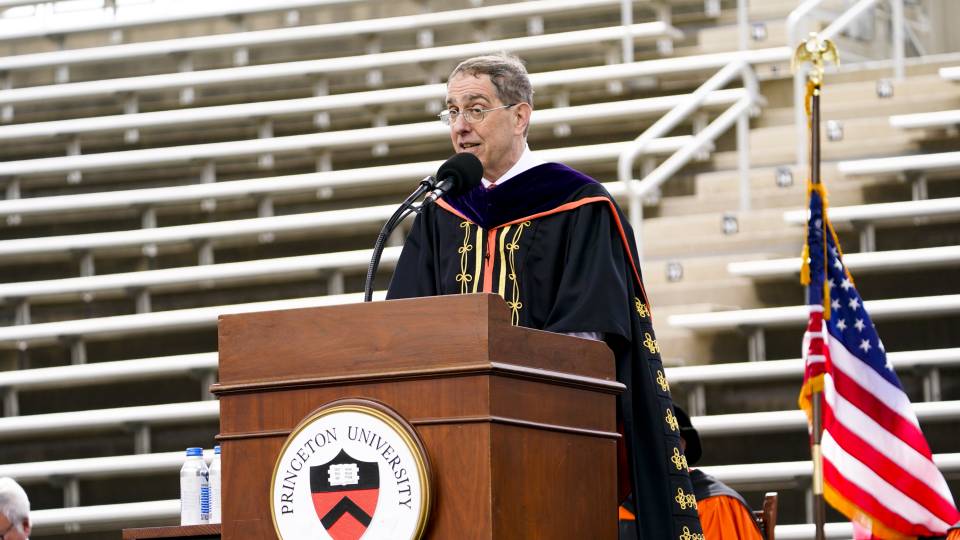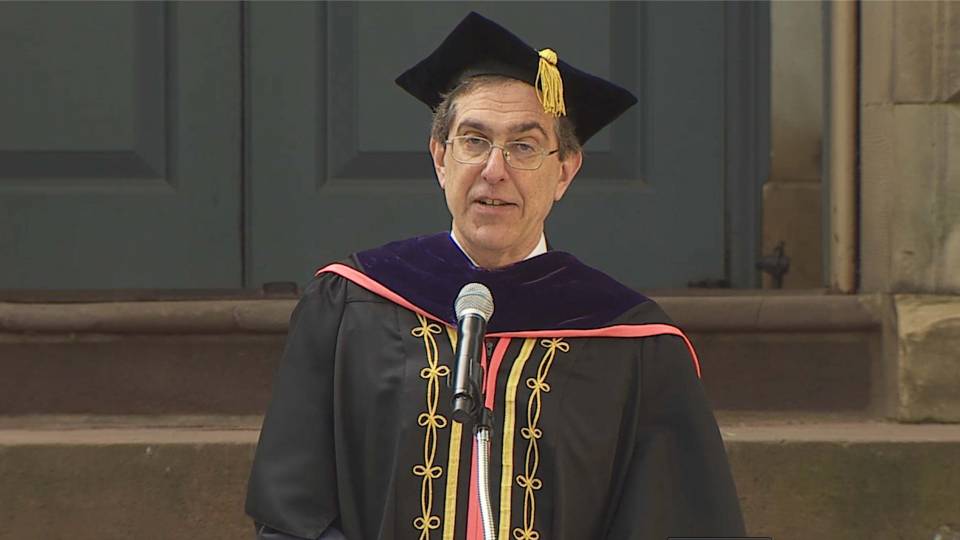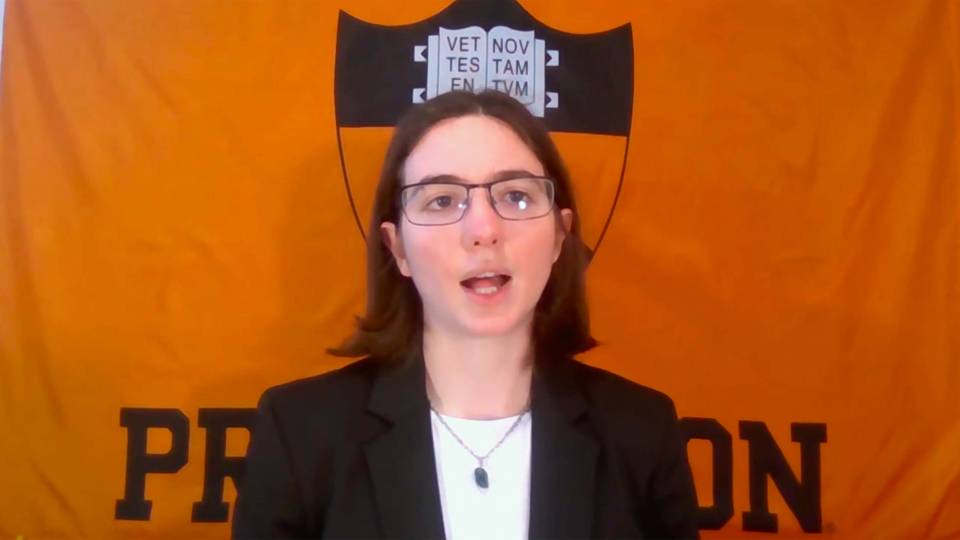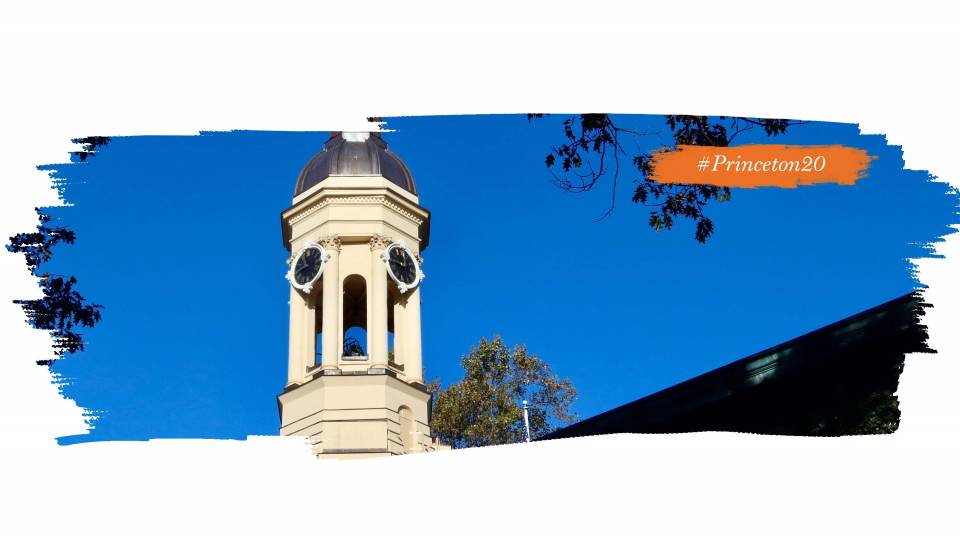Princeton University awarded five honorary degrees at Princeton’s 273rd Commencement, which were conferred virtually due to the COVID-19 pandemic.
This year’s honorary degree recipients are: Frances Arnold, Nobel laureate in chemistry and a Princeton graduate; Ray Chambers, philanthropist and global health advocate; Robin Roberts, sports reporter and pioneering TV anchor; William R. Schowalter; groundbreaking chemical engineer and an emeritus Princeton professor; and Linda Tsao Yang, leader in financial oversight and international development.
The following is biographical information on the recipients and the citations for the Commencement program.

Frances Arnold
Frances Arnold
Doctor of Science
Frances Arnold, a Princeton alumna, received the 2018 Nobel Prize in Chemistry “for the directed evolution of enzymes.” Arnold is the Linus Pauling Professor of Chemical Engineering, Bioengineering and Biochemistry at the California Institute of Technology (Caltech). She graduated from Princeton in 1979 with a B.S.E. in mechanical and aerospace engineering and has a Ph.D. is from the University of California, Berkeley. She is the first Princeton alumna (female graduate of either the undergraduate program or the Graduate School) to win a Nobel Prize. Arnold joined the faculty at Caltech in 1986, where she now is also director of the Donna and Benjamin Rosen Bioengineering Center. Her research approach, “directed evolution,” which she pioneered in the early 1990s, is a key factor in green technologies. Instead of waiting for random mutations to creep into genetic code over thousands of generations, Arnold works with bacteria — which rapidly produce new generations — and chooses which traits to breed together. The proteins Arnold now produces in her lab can speed up reactions that don’t exist in nature, leading to more environmentally friendly manufacturing of chemical substances — including medicines — and renewable fuels. Among her many honors, Arnold is a member of the National Academy of Sciences, the National Academy of Medicine, and the National Academy of Engineering. She received the 2019 Bower Award and Prize for Achievement in Science from the Franklin Institute, the Millennium Technology Prize in 2016, and the National Medal of Technology and Innovation in 2011. Arnold also is known for her mentorship of students and for emphasizing learning across disciplines. During a visit to Princeton soon after winning the Nobel Prize, she told students: “If you want a great education — a great, broad education — and to be surrounded by thinking people, people who care about how our society moves into the future, this is an excellent place to do that.”
Not satisfied with nature’s vast repertoire of proteins, she uses the most powerful biological design process in existence — evolution — to engineer chemical solutions to human problems. A winner of the Nobel Prize for directing evolution, she encourages random mutations in DNA, inserts the DNA into bacteria, and then selects the bacteria that produce the most useful enzymes to repeat the process with until she gets the desired results. Using chemical intuition and mimicking nature’s processes, she has generated new enzyme families that are key to vital reactions. With the same creativity of thought that she poured into Russian literature, economic theory, and solar panel design during her undergraduate years at Princeton, she now creates compounds that can replace toxic pesticides, provide alternatives to fossil fuels, improve MRI scans and manufacture medicines.

Ray Chambers
Ray Chambers
Doctor of Humane Letters
Philanthropist Ray Chambers has dedicated his humanitarian efforts to promoting health and supporting communities in the United States and internationally. Since 2018, he has served as ambassador for global strategy at the World Health Organization, an honorary role created to raise awareness about the organization’s goals to promote health and serve the vulnerable across the globe. Chambers previously served as the United Nations secretary-general's special envoy for health in Agenda 2030 and for malaria. In 2006, he co-founded Malaria No More, a nonprofit focused on eliminating malaria across the globe. He also was the UN secretary-general’s special envoy for financing the Health Millennium Development Goals, working with funding partners to support international efforts to deliver health care. More than three decades ago, Chambers left his career in private equity to focus on his philanthropic interests. He co-founded America’s Promise Alliance with former U.S. Secretary of State Colin Powell, aimed at increasing the graduation rate in American high schools. He co-founded the National Mentoring Partnership in the early 1990s to underscore the importance of building mentoring relationships for disadvantaged teens. He also served as the founding chair of the Points of Lights Foundation. Chambers also is a champion of New Jersey and his hometown, Newark. He serves on the board of JerseyCAN, which works to promote equity in New Jersey’s education system. He is a long-time supporter of the Boys & Girls Clubs of Newark and was instrumental in the development of the New Jersey Performing Arts Center and the Prudential Center in that city. He was awarded the Presidential Citizens Medal in 2008 and was inducted into the New Jersey Hall of Fame in 2013. Chambers has a bachelor's degree from Rutgers University-Newark and an MBA from Seton Hall University.
Raised in a working-class neighborhood, he met with great success at the helm of Wesray Capital Corporation before choosing to devote his energies to improving the world. He has been a staunch friend to his native Newark, N.J., which he has helped revitalize; to our country’s youth, on whose behalf he has championed the transformative power of mentoring; and to the international community, where, working with the United Nations, he has advanced the cause of global health, not least by spearheading an anti-malaria campaign that has saved millions of lives. In his unassuming but determined way, he shows how we must, in his words, come together to “shape the world as we wish to see it — a ‘new normal’ — one that is more compassionate, more equitable, and more humane.”
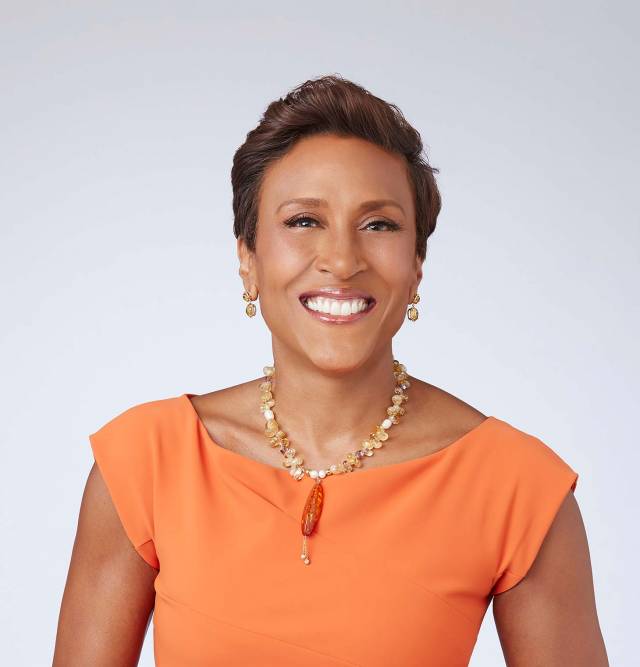
Robin Roberts
Robin Roberts
Doctor of Fine Arts
Robin Roberts is co-anchor of ABC’s “Good Morning America,” a role she has held since 2005. Over that time, the broadcast has won four Emmy Awards for Outstanding Morning Program and the 2017 People’s Choice Award for Favorite Daytime TV Hosting Team. Roberts started contributing to the morning program in 1995 and has worked in broadcasting for more than 30 years. Among her many honors, she received the Walter Cronkite Award for Excellence in Journalism and was inducted into the Broadcasting & Cable Hall of Fame as well as the Sports Broadcasting Hall of Fame. Earlier in her career, she was a contributor to ESPN as a host on “SportsCenter” and also worked on “NFL PrimeTime.” Roberts is the founder of Rock'n Robin Productions, which creates original broadcast and digital programming for ABC and other networks. In 2007, Roberts was diagnosed with breast cancer and five years later, MDS, for which she underwent a successful bone marrow transplant with a perfect match from her sister. Her work with Be the Match to inform the public about the need for more donors has increased participation in the bone marrow registry. Roberts has been recognized by the Susan G. Komen Foundation and the Congressional Families Cancer Prevention Program and has received a George Foster Peabody Award and Gracie Award. She was recognized at the 2013 ESPY Awards with the Arthur Ashe Courage Award. Roberts is the author of “From the Heart: 7 Rules to Live By” and a memoir, “Everybody’s Got Something.” Roberts is a graduate of Southeastern Louisiana University, where she was a standout basketball player. Roberts was a 2012 inductee to the Women’s Basketball Hall of Fame.
A star basketball player and sports reporter, a pioneering anchor, and a dedicated partner in the Be the Match international bone marrow registry, she has been a model of courage and leadership — for women of color, and for everyone. By candidly sharing her battles with breast cancer and myelodysplastic syndrome as well as her open gratitude for the match she found in her sister, Sally-Ann, she has helped raise funds and awareness for bone marrow donation. She has activated her public platform, built on over 30 years in broadcasting, to lift others up, support them in illness, and provide hope on the road to a cure. She has taught us, as she says, to “make your mess your message” and to find the grace in life’s challenges.
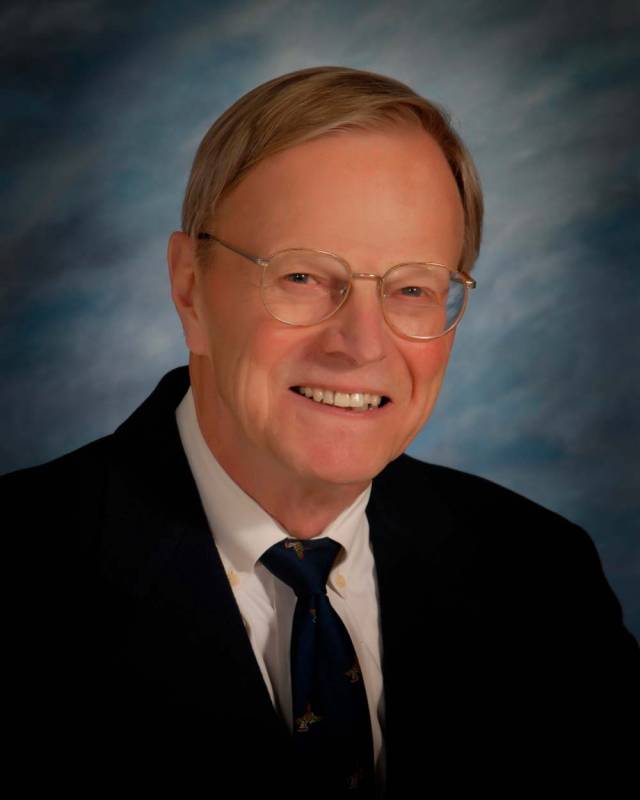
William R. Schowalter
William R. Schowalter
Doctor of Science
William Schowalter, whose engineering career spans seven decades, has left a lasting mark on the study of fluid mechanics. Schowalter, the 1950 Professor of Engineering and Applied Science, Emeritus, joined Princeton’s chemical engineering faculty in 1957, after serving in the Chemical Corps in the U.S. Army. He earned his Ph.D. from the University of Illinois and his bachelor's degree from the University of Wisconsin. In the early 1960s at Princeton, he became known as an international authority in the processing of complex fluids. Over the following two decades, Schowalter helped bring two major branches of study into the mainstream of chemical engineering research: rheology, the study of the flow of matter, and colloidal dispersions, the distribution of small, undissolved solids in a liquid mixture. In 1989, he became dean of engineering at the University of Illinois Urbana-Champaign. Schowalter has brought his leadership in science and technology policy to many endeavors. He has chaired numerous professional committees and served on advisory boards for several universities. He also was active in international engineering education and research, including working with universities in France, Singapore, and Saudi Arabia. In 2001, Schowalter retired as dean and returned to live in Princeton. Among his many honors, he is a member of the National Academy of Sciences, the American Academy of Arts and Sciences, and the National Academy of Engineering. He received the Bingham Medal from the Society of Rheology, a Guggenheim Fellowship, and the William H. Walker Award from the American Institute of Chemical Engineers (AIChE). Schowalter also was named Officier, Ordre des Palmes Académiques, a French honor recognizing academic service to universities, education and science. Last year, the AIChE created a lectureship named in his honor.
In an extraordinary career stretching across seven decades, he made foundational contributions to the field of chemical engineering and influenced legions of students and scholars around the world. Friends point out his ready smile, enthusiastic personality, optimistic outlook and love of opera. Colleagues praise his ability to teach complicated topics to undergraduate and graduate students alike. The scientific world lauds his remarkable technical and professional accomplishments, his integrity, and his leadership in science and technology policy. When he retired in 2001, his pace did not slow: He became an international ambassador for higher education as special advisor to university presidents in Singapore and Saudi Arabia, broadening his already profound contributions to engineering, science and the international research enterprise.
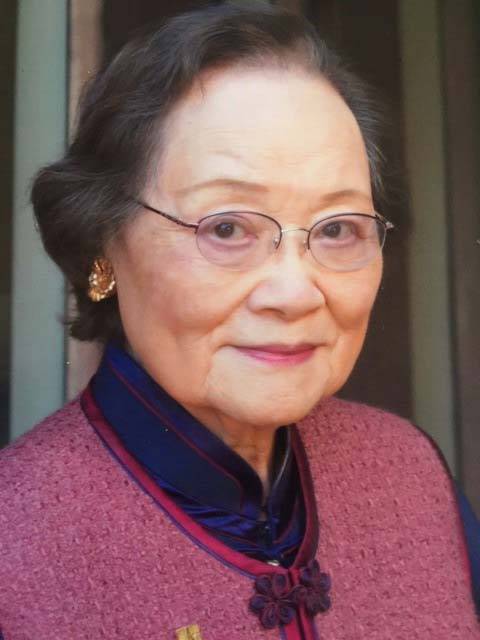
Linda Tsao Yang
Linda Tsao Yang
Doctor of Humane Letters
Linda Tsao Yang is a former U.S. ambassador and executive director to the Board of the Asian Development Bank in Manila. Appointed by President Clinton and confirmed by the Senate in 1993, she was the first woman and the first minority to represent the United States on the board of a multilateral financial institution. Upon her retirement in 1999, Yang received a Distinguished Service Award from the U.S. Department of the Treasury and was cited for her work in spearheading new policies on governance and transparency and in defining the bank’s participation in the international response to the Asian economic crisis. Yang is chair emeritus of the Asian Corporate Governance Association based in Hong Kong, which she chaired from 2001 to 2014. The ACGA is a nonprofit, member-supported organization chartered under the laws of Hong Kong to conduct research, education, and advocacy to improve corporate governance practices in Asian capital markets. Yang was an independent non-executive director on the board of the Bank of China (Hong Kong) from 2003 to 2010. Earlier in her career, she served as California’s Savings and Loan Commissioner and was appointed to the Board of Administration of the California Public Employees’ Retirement System. Yang is a member of The Committee of 100 in New York, a nonprofit, national organization of Chinese Americans dedicated to promoting constructive, mutually beneficial relations between the United States and China and full participation of Chinese Americans in all aspects of life in the United States. She serves on the Trusteeship for Betterment of Women of Los Angeles/International Women’s Forum, and is a member of the International Council of the Bretton Woods Committee in Washington, D.C., the Council on Foreign Relations in New York, and an advisory board member of the Center on Asia Pacific Policy, RAND Corporation, in Santa Monica, California. She is a trustee emerita of the Asia Foundation in San Francisco. Yang graduated from St. John’s University Shanghai and earned an M.Phil from Columbia Business School.
Witnessing injustice at an early age left a mark on her, fueling a lifelong dedication to breaking down barriers and allowing others through. Her choice to study economics in college in 1940s Shanghai was a step along this path, as was her subsequent decision to travel alone to the United States for a graduate degree. Guided by her mother’s lessons in perseverance and self-reliance, she earned a position in the world of finance, despite the many obstacles she faced as a woman and an immigrant. Embracing “no excuses” as her motto, she shattered glass ceiling after glass ceiling in the ensuing years, establishing a remarkable career in financial oversight and international development. With her passion for equal opportunity, this economist, corporate leader and diplomat has widened the path for all who would follow in her footsteps.
